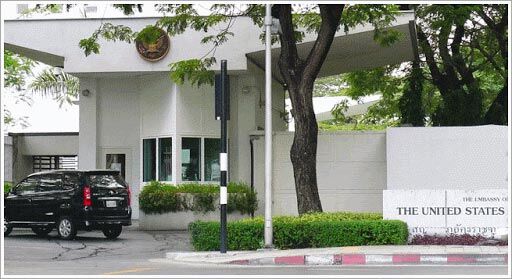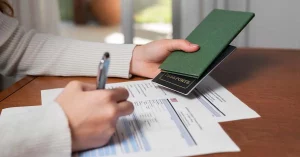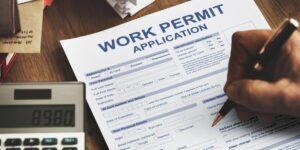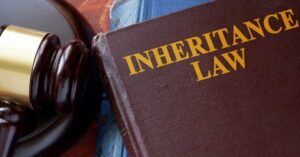The US Embassy Thailand provides consular services to US citizens, processes the US visa applications of Thai and other non-US citizens in Thailand, and to advance the interest and diplomatic relations between the governments of the United States of American and Thailand. The current ambassador of the United States to Thailand is the Honorable Michael George DeSombre.
American Citizens Services
The consular section of the US Embassy is tasked to assist US citizens both residents and visitors to Thailand by providing assistance with passport applications, including the issuance of emergency passports and other related travel documents, reports of birth and death in Thailand, legalization of documents, facilitating applications for federal benefits and providing emergency assistance to distressed US citizens in Thailand.
Issuance of US Passports
For a US citizen who has lost or stolen while in Thailand, the US Embassy can issue an emergency passport so you can travel back to the US. The US Embassy is also able to renew existing US passports and issue new US passports to infants or children. Passport applicants may appear in person at the US Embassy or apply by mail and submit 2 passport size photos, proof of US citizenship, such as a copy of a current passport, and proof of identity. The passports will be mailed to your mailing address in Thailand.
US Citizenship and Report of Birth
If you are an American citizen and you have a child born in Thailand, your child is a US citizen by birthright. In order to prove your child’s US citizenship and receive a US passport, you have to register the birth at the US Embassy or Consulate in Thailand. Your child must appear in person at the US Embassy with both parents. Once your child is registered, they will receive a Certificate of Citizenship and may apply for a US passport.
Notary Services
Consular Officers at the US Embassy may provide notarial services for all US citizens in Thailand. The embassy may provide acknowledgment of signature, power of attorney, and certified copies of US passports. Certain services are not offered and these include, certifying copies of academic credentials, marriage, birth, and divorce certificates issued in the US without authentication from the US Department of State. In cases where the consular office cannot provide any notarial services that you require, you may contact a competent Thai notary lawyer to certify your documents, particularly if such documents will be used in Thailand.
Marriage Affidavit
For a US Citizen who wishes to perform a legal marriage registration in Thailand, you must obtain a marriage affidavit from the embassy or consulate stating they are eligible for marriage. To obtain this affidavit, you must appear in person at the US Embassy in Bangkok and sign an affidavit in the presence of a consular officer. If you are marrying another US citizen, your partner will also need to obtain the same affidavit.
Income Affidavit
The US Embassy Bangkok and US Consulate Chiang Mai will no longer certify or issue income affidavit for Thai marriage visa and retirement visa applications. The US citizen now must open a Thai bank account and transfer the monthly income, such as personal/employment income or social security benefits, into the account in order to meet the requirements of the Thai Immigration Bureau.
Emergency Assistance
If you are a US citizen who has been arrested or a victim of a crime in Thailand, you have the right to meet with a consular official who will provide you with information on the justice system and connect you with a reputable Thailand lawyer. The consular official will check on your treatment, follow the progress of your case, and help you communicate with relatives in the United States.
When a US citizen dies in Thailand, the Thai authorities will notify the US Embassy in Bangkok. The embassy will confirm the death and identity and notify the next-of-kin of the deceased and help coordinate repatriation. If the deceased was resident in Thailand with a Thai will, you may need to contact a probate lawyer to administer any will or estate. It is also important to know that the US Embassy does not offer financial assistance or help with medical expenses.
For US Citizens in Thailand who require emergency assistance, you may call +66 2 205 4000. This number is available 24 hours a day.

US Visa Section
Aside from the consulate section, the US Embassy Thailand, also has a Visa Section that provides visa services to Thai and foreign nationals residing in Thailand who intend to enter the US. In particular, the embassy in Bangkok processes all types of US Visa applications i.e. non-immigrant and immigrant visas. Non-immigrant visas include tourist and business visas, while commonly issued immigrant visas include K1 Fiancé Visas, CR-1/IR-1 Marriage Visas, employment-based visas, and others. However, the US Consulate in Chiang Mai can only process non-immigrant visas and assists Americans living in or visiting the province or surrounding areas.
How to Apply for a US Visa at the US Embassy in Thailand?
The United States Embassy in Bangkok processes the US visa applications of Thai citizens. The final step of the US visa application process is an interview at the US Embassy in Bangkok. Some visa interviews may be conducted at the US Consulate General in Chiang Mai if it is more convenient for the applicant.
Types of US Visas
The Visa section of the US Embassy Bangkok takes care of applications for both nonimmigrant and immigrant visas in the following categories:
- US Tourist Visa
- K1 Fiance Visa
- K3 Marriage Visa
- CR1 Marriage Visa
- IR1 Family Visa
- F1 and J1 visas
- US work visas
- US Visa Waiver Application
US Tourist Visa
Visitor visas are nonimmigrant visas for Thai or foreign applicants who want to enter the United States temporarily for business (visa category: B-1), for tourism (visa category: B-2), or for a combination of both purposes (B-1/B-2).
K1 and K2 Visas
The US K1 Visa is also called the fiancé/fiancée visa. It is designed for use by Thai nationals or a foreigner who wishes to marry his or her US citizen petitioner in the US. Once the recipient receives the visa, he or she must marry the petitioner within 90 days of arrival in the US. The eligible children of a visa applicant can also apply for a K-2 visa to travel to the US.
K3 and K4 Visas
The US K3 Visa is classified as a non-immigrant visa and is designed for use by the Thai spouse of a US citizen. Eligible children of a visa applicant can apply for a K-4 visa. Both the K-3 visa and K-4 visa enable the applicants to stay in the US while their immigrant visa petitions are pending.
How to Contact the Embassy?
US Embassy in Bangkok
95 Wireless Road, Bangkok, Thailand 10330
Monday-Friday from 7 AM to 4 PM
Closed on official holidays of both the US and Thailand
Tel: +66-2-205-4000
Website: http://bangkok.usembassy.gov/
US Consulate General in Chiang Mai
387 Witchayanond Road, Chiang Mai, Thailand 50300
Tel: +66-53-107-700
Website: http://chiangmai.usconsulate.gov/
NOTE: Visitors to the embassy’s Consular Section and Visa Section will only be admitted if they have an appointment booked through the US embassy website.
US Embassy Thailand
Hiring a US Visa Consultant
The US Embassy does not have a section where visitors can receive visa information. You may check the embassy website for visa information or for the Thai citizens who need visa information you also may contact an immigration specialist experienced in handling US tourist (B2) and business (B1) visa applications as well as immigrant K1 and K2 visas, K3 and K4 Visa, CR-1 and IR-1 visas, and US visa denials and waiver applications.
Contact Siam Legal
 | Ken Graham US Immigration Attorney Partner, Siam Legal International |
 | Natdaphon Luengsawang Senior US Visa Consultant Siam Legal International |
LIVE SUPPORT
 CALLCall (702) 799 9719 |  CHATChat with our representative | |
| From US: Sunday – Friday 5:00 PM – 7:00 AM (New York time) 2:00 PM – 4:00 AM (Los Angeles time) From Thailand: Monday – Friday | ||






































